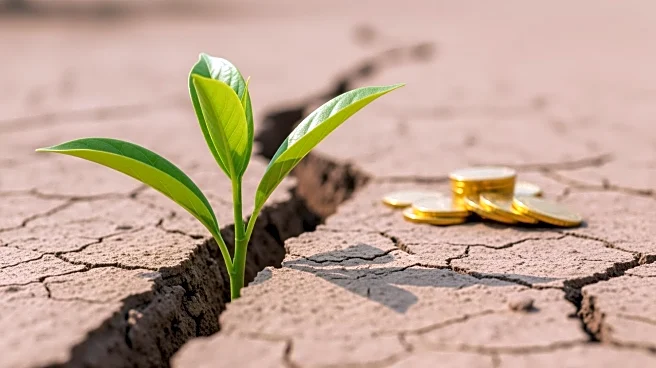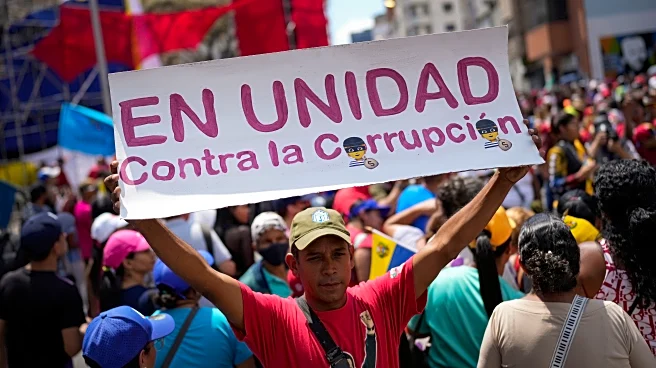What's Happening?
The COP30 Covered podcast, hosted by the edie team, delves into the challenges and opportunities in climate adaptation and financing. As the UN climate summit unfolds in Belém, Brazil, the podcast discusses
key announcements and initiatives, including the Tropical Forests Forever Facility aimed at preserving ecosystems. Dr. Ajam Gambhir, director of systemic risk assessment at ASRA, shares insights on scaling finance for climate adaptation and enhancing early warning systems. The podcast highlights the importance of embedding climate risk considerations into decision-making processes for policymakers and business leaders.
Why It's Important?
The podcast provides a platform for discussing critical issues in climate adaptation, emphasizing the need for effective financing mechanisms. As global climate commitments translate into local actions, the insights shared by experts like Dr. Gambhir are vital for guiding strategies in climate resilience. The focus on systemic risks and innovative solutions underscores the importance of proactive measures in addressing climate challenges. The podcast serves as a valuable resource for stakeholders seeking to enhance their understanding of climate adaptation and its implications for sustainable development.
What's Next?
The discussions in the podcast may lead to increased awareness and engagement among policymakers and business leaders in climate adaptation efforts. The insights shared could influence future strategies and initiatives aimed at scaling finance for climate resilience. As COP30 progresses, there may be further announcements and agreements that shape the global approach to climate adaptation. Stakeholders might advocate for more comprehensive frameworks to address systemic risks and enhance early warning systems, driving innovation in climate solutions.
Beyond the Headlines
The podcast highlights the ethical dimensions of climate adaptation, emphasizing the need for equitable and inclusive approaches. It raises questions about the role of developed nations in supporting vulnerable communities and the importance of international cooperation. The focus on systemic risks and innovative solutions may influence long-term strategies in climate resilience, potentially reshaping global priorities and alliances. The discussions serve as a reminder of the urgency and complexity of addressing climate challenges in a rapidly changing world.











